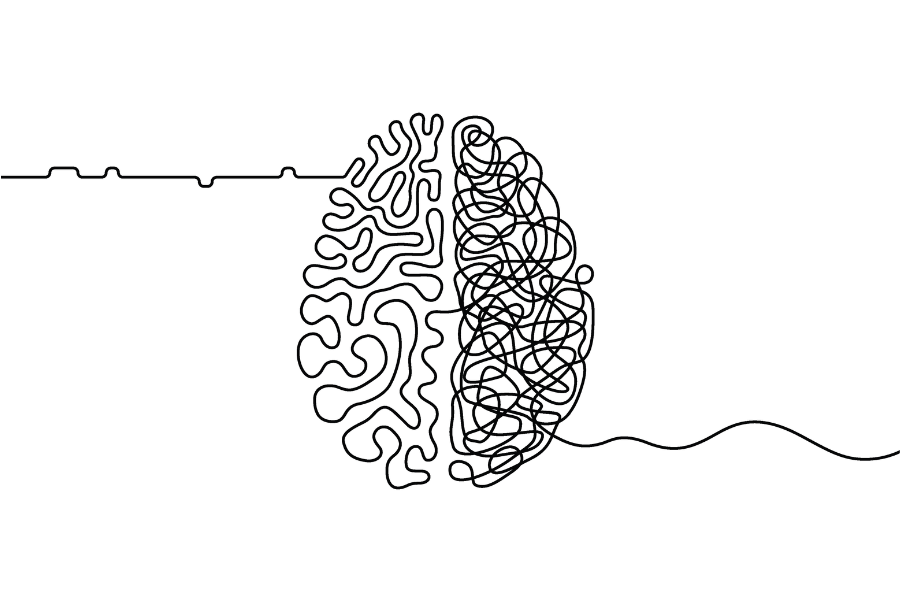A brain that ages
Over time, our bodies start to show the familiar signs of aging: our hair turns white, our muscles lose strength and our skin starts to wrinkle. The changes in our brain, though less visible, are just as real and can show up in a variety of ways.
These changes include :
-
Processing information more slowly
-
Decreased attention span
-
Memory problems
While all brains age, each does so at its own pace and in its own unique way, shaped by the individual’s background and life experiences.


The following changes occur naturally with age :
-
Some brain regions lose volume
-
Certain pathways between neurons become less efficient, causing communication between them to slow down
-
The heart pumps blood less efficiently, veins may harden or become blocked, and small vascular lesions may form—all of which can reduce blood flow and limit the supply of oxygen and glucose the brain needs to function optimally
Normal changes associated with aging
Carry out activities more slowly
Dressing, reading, grocery shopping, cooking
Feel more tired after mental effort
Such as after a long conversation, driving or going out
Occasionally search for words
Which can lead to answering a question more slowly or needing to ask for the question to be repeated
Memory lapses
Forgetting keys, the reason for entering a room or the purpose of a phone call
Worry more easily
About loved ones, upcoming plans, unresolved issues, tasks to be done, the weather, etc.
Video capsules
(Our videos are only in French)